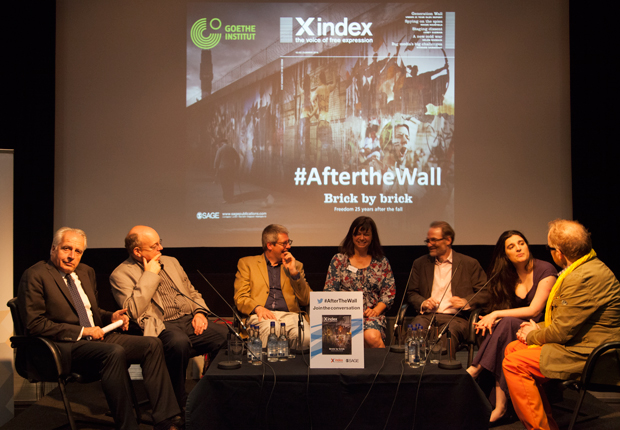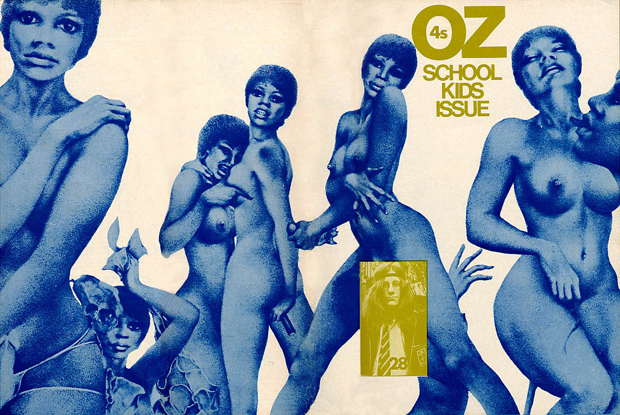Index relies entirely on the support of donors and readers to do its work.
Help us keep amplifying censored voices today.
This event is SOLD OUT. A live stream is available on this page and you can follow the online discussion via #futurejournalism. You can also email [email protected] to be added to the waiting list.
Don’t miss the launch of the autumn edition of the Index on Censorship magazine, where there will be lively discussion around the question: Eyes Wide Shut? Will The Future of Journalism Mean We Are Any Better Informed? The discussion will tackle questions about whether changes within journalism will leave the public knowing more or less than they have in the past. Will new technologies bring us greater depth of information? Will news survive or will celebrity gossip take over? Will citizen journalism carry more weight than traditional TV channels?
The event will be chaired by columnist, author and Index chairman David Aaronovitch, and introduced by Index on Censorship magazine editor Rachael Jolley.
Speakers include:
WHEN: 630pm, Wednesday 22 October
WHERE: Frontline Club, 13 Norfolk Place, London W2 1QJ (map)
This event is SOLD OUT. A live stream of the event will be available from this page on Oct 22.
See footage from the launch of the summer magazine here.

We want to offer free access to Index on Censorship magazine’s ipad or iphone app from a symbolic place that represents freedom or censorship anywhere around the world – and we are calling on you to nominate your choice.
Suggest a symbolic place for censorship or freedom – from Speakers’ Corner in London to Egypt’s Tahrir Square – and if we opt for your suggestion, we will unlock the app so readers standing on that spot will get free access for one year.
Download the free taster app today here
What you need to do:
1) Pick a global location that’s associated with free speech or censorship
2) Tweet your nominated location to @Index_Magazine using hashtag #FREESPEECH before 30 September 2014. Follow @Index_Magazine if you are not already a follower.
3) Selected locations announced on 22 October 2014, with free access to Index on Censorship Magazine app immediately available for one year
* Winning locations picked by Index on Censorship magazine team
** Free app access available at winning locations until 1st September 2015
*** Information on the Index on Censorship magazine app here
It was a full house at the Goethe Institut in west London on Thursday night as Index magazine launched its latest issue with a debate on freedom in Europe, 25 years after the fall of the Berlin Wall. Did things turned out as we expected? Is the world a better place? What lies ahead?
Our panel – led by editor Rachael Jolley – included playwright David Edgar, historian Timothy Garton Ash, V&A director Martin Roth, journalist Kate Maltby, German author Sebastian Borger, and Polish philosopher and LGBT activist Tomasz Kitlinski.
After opening up to questions from the floor, the debate steered through a wide-ranging field of topics: nostalgia, capitalism, art censorship, minorities, LGBT rights, new divides, the rise of the far right.
The audience – packed with Index supporters, journalists, academics, members of the arts world and newcomers – also got to cast their vote on whether we are freer now than before the wall was dismantled. Opinions were split and a mumble went through the room: “Who are ‘we’?”
Read more on the issues raised in our current magazine – a post-wall special – and get a taster of the debate, below.


The school kids issue of Oz magazine lead to one of the longest conspiracy trials in England (Image: OZ/Wikimedia Commons)
Felix Dennis, a publisher, poet and spoken word performer, passed away on Sunday at his home in Stratford-upon-Avon, aged 67. Dennis was perhaps most well-known for being the brainchild behind publications such as Blender, Men’s Fitness, and The Week. But it was his work with Oz magazine as co-editor in the 1970s, and the ensuing conspiracy trial over the infamous school kids issue of the publication which first threw Dennis’ name into the limelight.
In 2008, John Mortimer spoke to Index about defending the editors of Oz magazine as he took on one of the most infamous obscenity cases on the 1970s:
Oz was a satirical, underground magazine founded in Australia in the 1960s. The editors of the London edition – Richard Neville, Jim Anderson and Felix Dennis – were prosecuted under the Obscene Publications Act in 1971 for a schoolkids issue (edited by teenage schoolchildren). Particular offence was caused by a cartoon of Rupert Bear having sex – in a collage created by schoolboy contributor Vivien Berger. The editors were found guilty and the convictions provoked an outcry. Hundreds demonstrated outside the Old Bailey in London, including John Lennon and Yoko Ono. The verdict was later quashed on appeal.
Index: What were the grounds for prosecution?
John Mortimer: Well, it was sort of the birth of that particular Obscene Publications Act [1959], which was Roy Jenkins’s doing [Jenkins was principal sponsor of the bill as a backbench MP]. It was meant to be liberalising, because it allowed defences of literary merit and scientific merit and all sorts of ‘bits’ of merit. It was a test of that and the Obscene Publications Act, which was meant to be a work of great liberality. It would test obscenity, which was something that would tend to deprave and corrupt the people who were likely to read it. But then there were numerous defences – that it was of literary merit or historical merit or scientific merit and so on. It seemed rather strange you could be depraved and corrupted, and on the other hand you knew more about history – that could be a defence. So it never ever seemed to me to be a particularly sensible piece of legislation.
Index: What did you think of it first of all, when you discovered what the charges were?
John Mortimer: It was the schoolkids Oz and nobody wanted to do it. Everybody turned it down. They thought it was disgraceful, defending the schoolkids Oz like that. Numerous QCs turned it down.